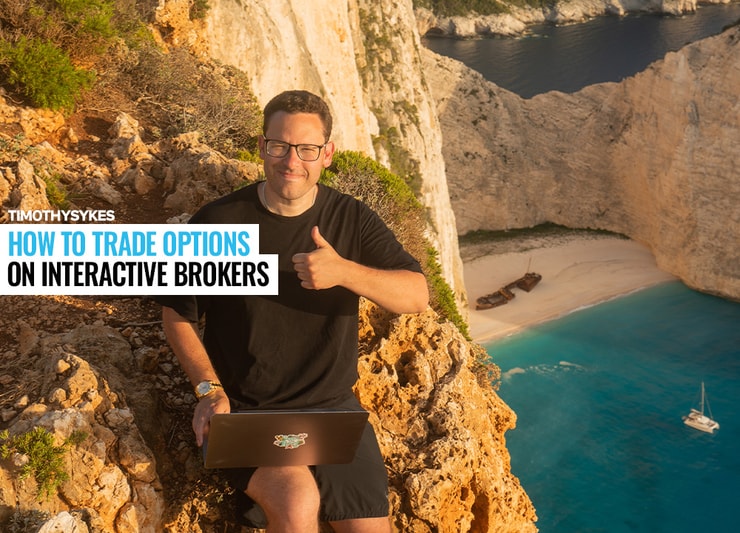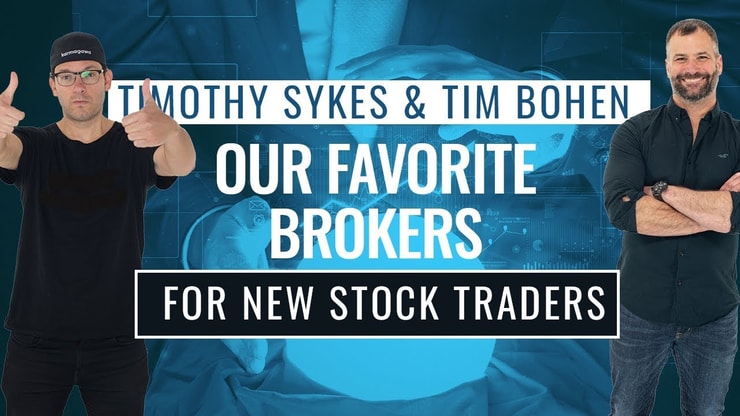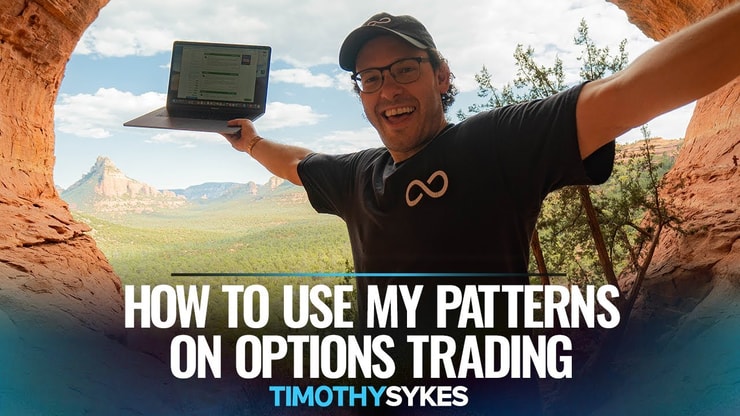Learning how to trade options on Interactive Brokers (IBKR) is something many serious options traders should consider.
Most online brokers nowadays are geared toward beginner traders. There’s nothing wrong with being a beginner-focused platform. But experienced traders will want a trading platform with more meat on its bones.
Interactive Brokers is one of the top online brokers due to its advanced technology. It’s packed with features that benefit active traders.
Does that mean Interactive Brokers is a good online broker? That depends on whether it caters to your needs.
The best broker for YOU is one that will help you reach your goals. You can get a sense for whether it will be able to by exploring its features — that’s what we’re here to do.
Read on for a deep dive into Interactive Brokers’ features and see if it’s the right broker for you!
Table of Contents
Trading on Interactive Brokers

Interactive Brokers built its reputation as a great trading platform for experienced traders. This might deter some beginner traders because they think the platform is complicated. But that’s not entirely true.
IBKR offers multiple accounts and trading platforms for traders of various experience levels and strategies. This includes all of the following:
- IBKR Lite: This is Interactive Broker’s account for part-time traders. It offers commission-free trading and access to IBKR’s flagship platform, Trader Workstation. It’s a highly-customizable desktop trading app with best-in-class screeners, analysis tools, and more. It even has an options strategy lab that compares multiple options chains simultaneously.
- IBKR Pro: This is Interactive Broker’s account for advanced and full-time traders. It gives traders everything included with IBKR Lite, but lets you route your own trades so you’re not subject to payment for order flow (PFOF) routing. Pro also gives you lower margin rates.
- IBKR IMPACT: This is a trading app for responsible investing and trading. The IMPACT app lets you choose stocks based on a company’s values and political spending. The IMPACT dashboard also lets you exclude companies with dubious business practices. This means you can avoid companies that do animal testing or other things you oppose.
- IBKR GlobalTrader: This is an app for international traders. IBKR GlobalTrader provides access to over 80 exchanges on multiple continents. This is especially useful for trading European stocks or other foreign securities.
IBKR provides these features for all accounts:
- Wide asset selection
- Commission-free trading on IBKR Lite
- Low commission fees on IBKR Pro
- Access to its powerful suite of platforms
- Top-notch research from numerous sources
- Paper trading simulator
- Phone, email, and chat-based customer service
Looking for alternatives to Interactive Brokers? Check out my articles on Schwab, Fidelity, and Questrade.
Benefits of Trading Options Using Interactive Brokers
Interactive Brokers is one of the most popular broker choices for options traders. Here are several reasons why:
Multiple Account Choices
Interactive Brokers caters to customers of all experience levels. You can choose IBKR Lite if you’re a casual trader and IBKR Pro if you’re a professional trader. Both accounts have access to the same powerful tools.
Low-Cost Trading
Like most brokers, IBKR Lite doesn’t charge commission fees on stocks, exchange-traded funds, and options. You only need to pay the standard $0.65 contract fee on options.
If you’re like me and think it’s worth paying for better executions, check out IBKR Pro. There’s a commission of up to $0.005 per share for stocks and some ETFs, and no added base commission on options. The biggest difference between the two account types is Pro’s improved order routing, which can provide more control and better executions.
More Breaking News
- Breaking News: Ondas Navigates Market with Enhanced Strategy
- Strategic Acquisition Expands Momentus Inc.’s Horizons
- Supreme Court Greenlights New Gold’s Game-Changing Acquisition by Coeur Mining
- Entegris Faces CFO Transition Amid Price Target Boosts from Analysts
Wide Trading and Investment Selection
If you like trading multiple asset types, IBKR has you covered. It offers the usual stocks, mutual funds, bonds, hedge funds, and options. It also deals in fractional shares, precious metals, and select cryptocurrencies.
It’s always a good thing to have a broker that offers more than you need, and gives you the space to grow and change strategies.
Large Research Repository and Extensive Educational Resources
IBKR has a massive selection of research materials. It offers paid and free subscriptions to reports on thousands of companies.
IBKR has educational resources for new and advanced traders alike. There are bite-sized videos on different investment products, webinars on trading strategies, and more. It also has multi-language tutorials for international traders.
Solid Account Insurance and Security
Although IBKR is an international broker, it provides industry-standard SIPC protection for its U.S. users. That ensures your account for up to $500,000.
Mobile device users can implement biometric recognition to log into their accounts. Advanced traders with large accounts can get extra protection with a security card.
Steps to Start Trading Options on Interactive Brokers

Here’s a four-step guide to starting your options trading journey on Interactive Brokers:
1. Open an Interactive Brokers Account
Set up your brokerage account and choose between IBKR Lite and Pro. Make sure you’ve done your research first — these accounts have different fees, which will affect your trading strategy.
2. Log in to the Interactive Brokers App
You can use the more powerful desktop platform, Trader Workstation (TWS), or the web or mobile apps. They will all let you trade options, but TWS has the most specialized tools.
3. Get Approved for Options Trading
You need approval before you can trade options on Interactive Brokers. Open your Account Settings and choose Trading Permission. Check the box for options trading, answer the questions, and sign on the dotted line. Trading permissions are usually approved within two business days.
4. Start Trading Options
Just remember to follow these rules…
- Don’t copy trades or picks. Trading isn’t about discovering some secret super stock — it’s about recognizing opportunity and having the skills to make it work for you.
- Learn options strategies from advanced traders. A good way to do this is by joining online communities and sharing your trading experiences.
- Make your own watchlists. This is the bedrock of becoming a self-sufficient trader. Watchlists let you shrink the massive offerings of the market down to a manageable, high-potential set.
- Record every trade for future review. This helps identify what went right and what needs improvement.
Learning from experienced traders is the best way to avoid some of the dumb mistakes most traders make. Their knowledge will also help you develop your strategies faster.
If you’re searching for a mentorship program, check out my former student Mark Croock’s Evolved Trader. He’s taken my penny stock strategies and applied them to options trading — making $3.9 million in career earnings in the process!
Here’s a sneak peek of Mark’s curriculum:





Leave a reply